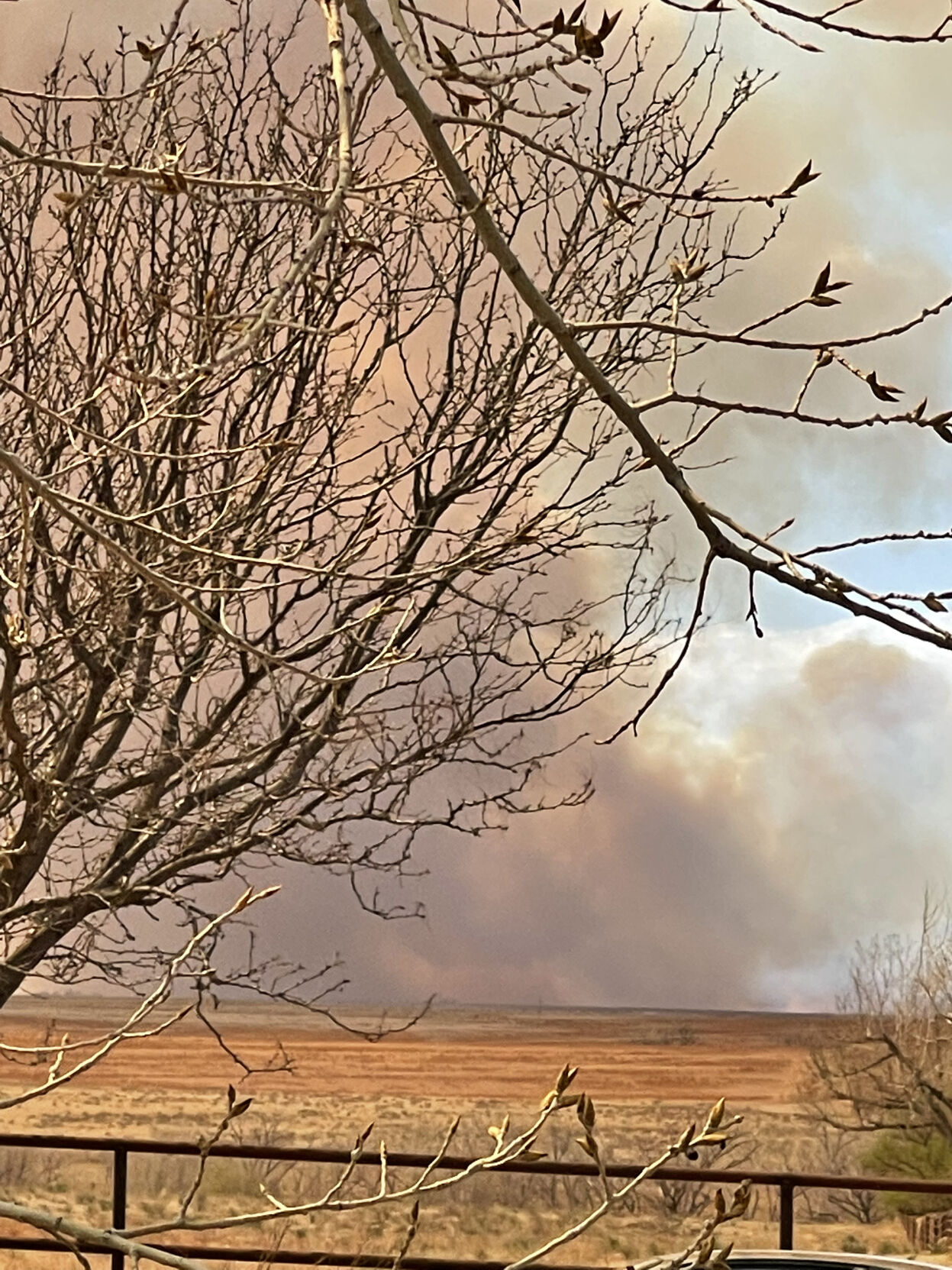Extreme winds across the High Plains continue to fuel wildfires across Oklahoma, Texas and Kansas, exhausting fire departments and devastating communities. According to the Mesonet, on April 6 wind speeds reached 67 miles per hour in some parts of Oklahoma. One fire, called the Beaver River Fire, broke out on April 5 in Beaver County, destroying at least two residences.
Damon Rigdon has been a member of the Beaver Volunteer Fire Department for about 15 years and was recently named the communications coordinator for the department. He said the Beaver River Fire is now 100% contained and the incident command was closed April 7. He said this particular fire burned approximately 26,000 acres. It is not known if any livestock perished in the fire at this time. Rigdon said the cause of the fire is still under investigation.
Additionally, two firefighters, Tyler Morris and Jason Smith from Balko, Oklahoma, were burned when their fire truck overturned due to low visibility from smoke. They were flown to the Lubbock burn unit, and they are currently in stable condition. Rigdon said there is a medical fund set up at First Security Bank in Beaver for victims of the fire.
As firefighters were finishing off the Beaver River Fire, another fire, known as the 23 Fire, ignited at the junction of Highway 23 and 64, which is about 6 miles northeast of Forgan, Oklahoma. This fire was headed for the Kansas border and the town of Meade. Rigdon said the 23 Fire is out, but the containment is still 0%—meaning the perimeter has not been completely checked by the forest service. This fire burned approximately 20,000 acres. It is not known if any structures were lost or any injuries to people of livestock. Although these fires are under control, Rigdon all other firefighters are concerned about the high winds and dry conditions over the next week.
“I don’t think it will reignite any fires that we’ve currently been battling, but we may have new ones spring up,” he said.
Although the wind cannot be helped, there are some measures everyone can take to reduce the chances of a fire accidently breaking out.
“Be very vigilant and aware of anything that you’re doing outside,” he explained. “Of course, don’t start open flames, be sure to extinguish cigarette butts or even better, keep an ashtray in your vehicle. If you are using chains for towing trailers, make sure that all chains and tie-downs are secured. Additionally, make sure your trailer is not overloaded to cause a wheel bearing to get hot.”
He also cautioned motorists from driving across pastures or even pulling off on the side of the road in tall grass with their vehicle running. “With as dry as we are, it doesn’t take much to ignite,” Rigdon said. “These aren’t things that people think about until it happens and then it’s too late.”
He also reminded drivers to keep the roadways clear during wildfire to prevent accidents and traffic jams.
“I know it’s exciting to go see what’s going on, but it does create a lot of congestion and dangerous situations having people out on the roadways.”
With the weatherman’s forecasts for next week, firefighters are preparing for another round coming up, but still struggling to recover from these fires.
“It’s been very limited sleep for a lot of our guys and they still have to go to their jobs,” Rigdon said. “Then we still have to do repairs and maintenance on our trucks. Morale is still pretty good, but everyone is exhausted.”
He said he would like to thank everyone who has supported the firefighters’ efforts to extinguish these fires.
“We appreciate the support we have received from surrounding counties sending their fire departments, local businesses supplying fuel and tankers with water, emergency support that has been there to support fire fighters, the local community for donations as far as food, drinks and medical supplies. We really appreciate those who have come out to help us. I just hope that everyone stays safe and aware of the dangers that are out there.”
Lacey Vilhauer can be reached at 620-227-1871 or [email protected].



